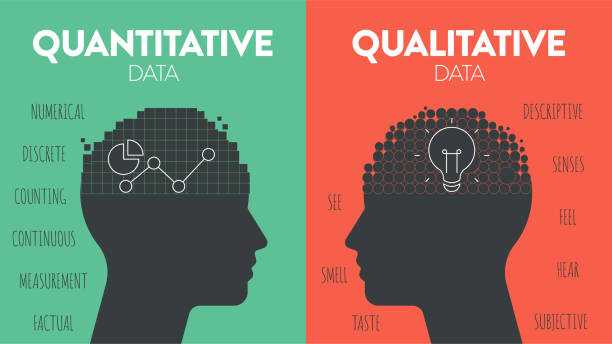Market research plays a significant role in creating effective business strategies. By providing data-driven insights, it allows companies to make informed decisions, predict trends, and stay competitive. Understanding its importance is essential for any organization aiming to achieve growth and long-term success.
What is Market Research?
Market research is the process of gathering, analyzing, and interpreting data about a market, including customers, competitors, and industry trends. This information helps businesses understand their audience’s preferences, behaviors, and needs.
Types of Market Research
- Primary Research: Involves directly collecting data through surveys, interviews, or focus groups.
- Secondary Research: Uses existing data from reports, studies, or public sources to gather information.
Both types provide valuable insights that guide business decisions and improve strategic planning.
Why Market Research Matters in Strategy
Market research serves as a foundation for strategic planning by offering detailed information about the business environment. Let us take a closer look at why it is so valuable.
Understanding Customer Needs
Market research reveals what customers want and expect from your product or service. This helps businesses design offerings that truly address their audience’s needs.
Identifying Market Trends
Analyzing market trends keeps businesses updated on changes in consumer behavior, technology, and industry standards. Staying informed helps companies adapt their strategies to align with the latest developments.
Evaluating Competitors
Allows businesses to analyze their competitors’ strengths and weaknesses. Knowing what others in your industry are doing can help you identify gaps or areas for improvement.
Reducing Risks
Launching a new product or entering a new market is risky. Reduces this risk by providing critical data that informs decisions, ensuring better outcomes.
How Market Research Shapes Business Goals
Market research is crucial for setting realistic and measurable goals. With clear insights, businesses can prioritize objectives and allocate resources more effectively.
Developing Marketing Strategies
The data collected through market research helps companies create tailored marketing campaigns. For example, knowing your target audience’s demographics and preferences enables you to craft messages that resonate with them.

Improving Product Offerings
Feedback from customers through surveys or focus groups can guide product improvements. When businesses understand what works and what does not, they can refine their offerings to meet customer expectations.
Methods of Conducting Market Research
Different methods are used depending on the business goals and the type of information needed. Here are some popular approaches:
Surveys
Surveys are a cost-effective way to gather information about customer preferences, opinions, and satisfaction levels. They can be conducted online, in person, or through mail.
Focus Groups
Focus groups involve discussions with a small group of people to understand their opinions about a product, service, or idea. This method provides detailed feedback and uncovers hidden perceptions.
Observation
Observing customers in real-world settings helps businesses understand behaviors without relying on self-reported data. This method is particularly useful for retail and service industries.
Challenges in Market Research
While market research is invaluable, it is not without challenges. Businesses need to be aware of these obstacles to conduct effective studies.
Data Accuracy
Ensuring the accuracy of collected data can be difficult, especially when relying on self-reported information. Participants may not always provide honest answers.
High Costs
Conducting thorough research can be expensive, particularly for small businesses. However, careful planning and prioritization can help manage costs.
Changing Trends
The business environment evolves rapidly, making it challenging to keep research up to date. Regular data collection is necessary to stay relevant.
How to Use Market Research in Strategic Planning
Incorporating market research into your strategy involves several steps.
Step 1: Define Objectives
Start by identifying what you want to achieve through market research. Clear objectives guide the research process and ensure meaningful results.
Step 2: Collect Data
Use a mix of primary and secondary research methods to gather comprehensive information. The broader the data, the better the insights.
Step 3: Analyze Findings
Look for patterns, trends, and significant points in the collected data. This analysis helps you understand your market and audience better.
Step 4: Apply Insights
Integrate your findings into strategic plans. Use them to develop products, set pricing, design marketing campaigns, and identify growth opportunities.

Benefits of Market Research in Business Strategy
It offers numerous advantages for strategic planning. Here are some key benefits:
Better Decision-Making
Informed decisions based on research data are more likely to succeed. They reduce guesswork and improve outcomes.
Increased Customer Satisfaction
Understanding what customers want helps businesses deliver better experiences, which boosts satisfaction and loyalty.
Improved Competitiveness
Staying aware of market trends and competitor activities helps businesses maintain a competitive edge.
Common Mistakes to Avoid in Market Research
Even with the best intentions, businesses can make mistakes when conducting market research. Being aware of these pitfalls helps you avoid them.
Insufficient Sample Size
Using too few participants in surveys or focus groups can lead to unreliable results. Ensure your sample is large and diverse enough to represent your audience.
Ignoring Secondary Research
While primary research is valuable, do not overlook secondary sources. Existing data can provide insights at a fraction of the cost.
Misinterpreting Data
It is essential to analyze data objectively. Avoid confirmation bias, where you only focus on results that support your preconceived ideas.
Future Trends in Market Research
As technology advances, market research is evolving. Here are some trends shaping its future:
Artificial Intelligence
AI tools are making data analysis faster and more accurate. They help businesses uncover patterns and insights that might otherwise go unnoticed.

Social Media Listening
Monitoring social media platforms allows businesses to understand customer opinions in real-time. This method provides unfiltered feedback straight from the audience.
Mobile Research
With the rise of smartphones, mobile-based surveys and apps are becoming increasingly popular for collecting data.
Conclusion: Market Research
Market research is an indispensable part of creating a successful business strategy. By understanding your customers, analyzing competitors, and staying on top of trends, you can make decisions that drive growth and improve outcomes. Whether you are a startup or an established company, investing in market research ensures you are well-prepared to face challenges and seize opportunities.








